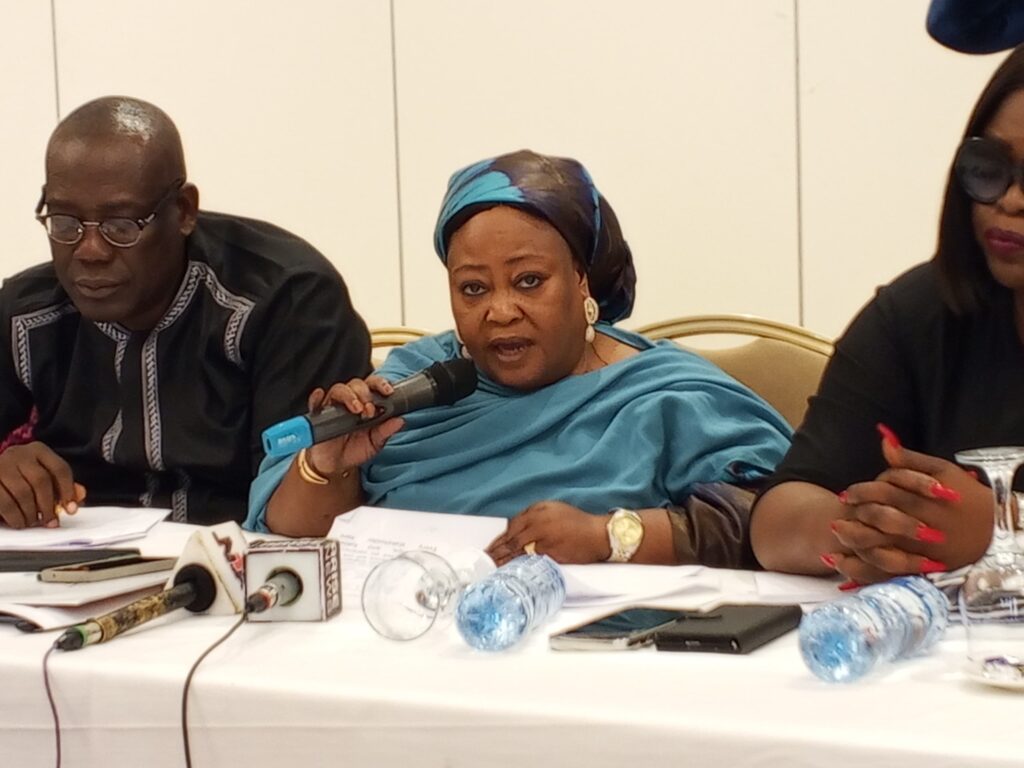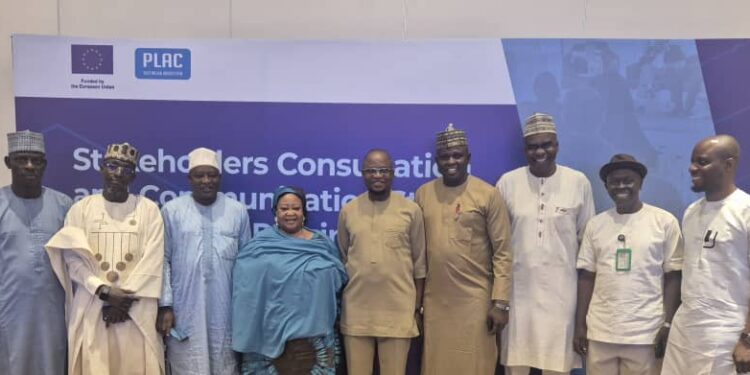By Queen Kunde
A coalition of media professionals, civil society organisations, and gender advocates have renewed the national push for the passage of the Special Seats Bill for Women, urging the 10th National Assembly to take decisive action before the end of 2025.
The Policy and Legal Advocacy Centre (PLAC), with funding support from the European Union (EU), convened a high-level stakeholders’ meeting in Abuja on Wednesday, October 29, 2025, to fine-tune strategies for sustained advocacy and communication toward the bill’s passage.
In his opening address, Executive Director of PLAC, Mr. Clement Nwankwo, commended stakeholders for their unwavering commitment, stressing that the bill represents a defining moment for Nigeria’s democracy.
According to him, “We are here to perfect strategies that will ensure the 10th National Assembly passes the Special Seats Bill into law. This time, we must send out well-structured messages that resonate with legislators and the public. The correct title is the Special Seats Bill, not the reserved seats bill — and such details matter in shaping perception and support.”
Nwankwo emphasized that lessons had been learned from the failed attempt during the 9th Assembly, adding that this renewed push must focus on “strategic communication and legislative engagement.”
Also speaking, Mr. Gbenga Aruleba, veteran journalist and PLAC Board Member, said the bill’s passage would not only benefit women but also strengthen Nigeria’s global image as a nation committed to fairness, inclusivity, and justice.
“This bill will go down in history as one of the most transformative decisions of the 10th Assembly,” Aruleba said. “It is not just for women; it is for democracy itself.”
In his goodwill message, Hon. Akin Rotimi, Chairman, House of Representatives Committee on Media and Public Affairs, disclosed that voting on the constitutional review process — which includes the Special Seats Bill — would take place before the end of December 2025.
He advised advocates to intensify their efforts and use precise, persuasive language in engaging legislators.
“I can assure you that all lawmakers from Ekiti will support the bill,” he said, citing the increasing number of women holding leadership positions in his state as proof that Nigeria is ready for more inclusive governance.

Comrade Aisha Ibrahim, National Chairperson of the Nigeria Association of Women Journalists (NAWOJ), delivered a powerful address, describing the Special Seats Bill as a “moral and political statement” of Nigeria’s commitment to true democracy.
“If we fail to get it right this time, it will not just be a missed opportunity — it will be a bad omen for our democracy,” she warned. “But if we succeed, we will set a powerful example of what collective purpose and strategic communication can achieve.”
Also lending his voice, Mr. Achike Chude, National Secretary of the Nigeria Union of Journalists (NUJ), called for creative advocacy, including lobbying legislators’ spouses to build wider support for the bill.
“With the NUJ’s nationwide presence, journalists will be at the forefront of this advocacy,” he said. “This is not just about women; it’s about placing Nigeria in a positive light globally.”
The Special Seats Bill seeks to create additional legislative seats — one per state and the Federal Capital Territory in both the Senate and House of Representatives, as well as in state assemblies — to guarantee women’s representation in governance. Advocates argue that Nigeria’s current record, with only four women in the 109-member Senate and a handful in the House, undermines the principles of inclusion and equity.
Participants at the meeting unanimously endorsed PLAC’s strategic framework for mass advocacy, which includes media campaigns, town hall engagements, and targeted outreach to political parties, religious and traditional leaders, and youth groups.
As momentum builds, stakeholders agreed that the coming months will be decisive for the fate of the bill. Their message to lawmakers was clear:
Passing the Special Seats Bill is not a favor to women — it is a bold step toward a more just, inclusive, and representative Nigeria.


